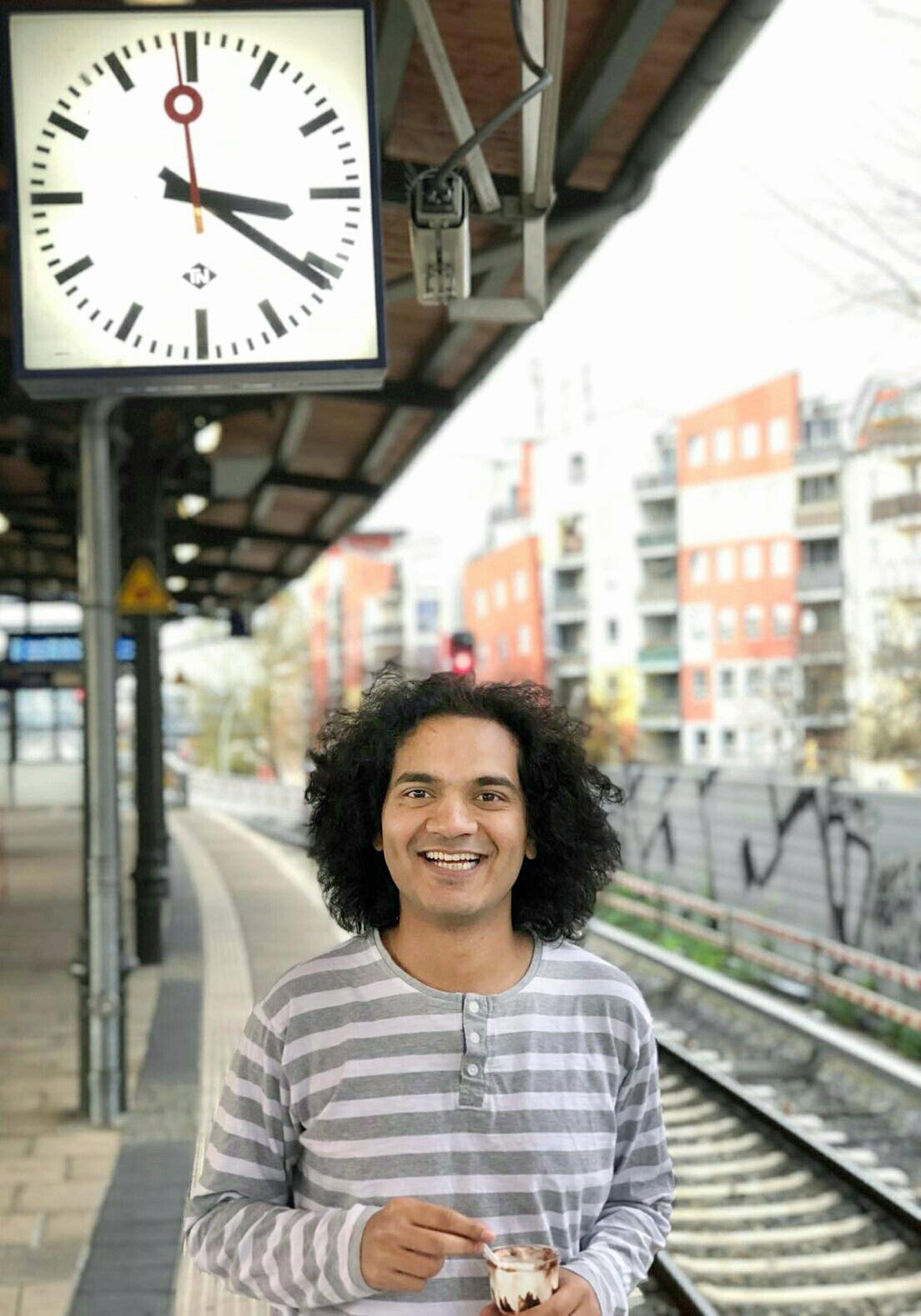Dr Abhi Upadhyay is from central India. He obtained a bachelor’s degree (BEng) in Biotechnology Engineering. Later at the Indian Institute of Science (IISc), Bangalore, India, he focused on the multicellularity in social amoebae (Dictyostelium). He went on to receive a full scholarship from the University of Hong Kong (HKU) to undertake a research-based masters (MPhil) in Marine Biology, performing mesocosmic and biochemical experiments on intertidal oyster (Crassostrea) larvae and shell proteins.
Dr Upadhyay briefly investigated protein-protein interactions in archeon (Methanococcus) and an evolutionary origin of cellular life during an appointment at the University of Witwatersrand(Wits), Johannesburg, South Africa. His theoretical-PhD (cumulative thesis) in Systems Chronobiology was undertaken at Humboldt University of Berlin (HU) in collaboration with Heidelberg University in Germany. Here he mathematically modelled (simulations in Python) the mechanisms of molecular switches and origin of rhythms in the circadian clock of a filamentous fungi (Neurospora).
In his postdoc training at Friedrich Miescher Institute (FMI), Basel, Switzerland, Dr Upadhyay successfully combined experiments (time-course omics) and theory (data analysis in R) to discover oscillations at the (phospho-) proteome levels in the developmental clock of roundworm (C. elegans).
Moreover, Abhi is Postdoctoral Society Fellow of Trinity College, Cambridge and member of Cambridge Union. In his free time, Abhi enjoys hiking to mountains, photography, bicycling, kayaking, flying gliders and playing football and polo.
Current research
Based at the Sainsbury Laboratory of the University of Cambridge, Dr Upadhyay has worked in the Locke group and in close collaboration with Webb group in Cambridge and Tokuda group in Kyoto, Japan. He has performed comparative data-driven computational modelling (optimization and simulations in MATLAB) of small flowering plant (Arabidopsis) and wheat (Triticum) circadian clocks to build the first quantitative mathematical models of the wheat clock.
Education
- Postdoc Fellow (Trinity College-University of Cambridge), England
- Postdoc Trainee (FMI-Basel), Switzerland
- Ph.D (HU-Berlin & Heidelberg), Germany
- Predoc (Wits-Jo'burg), South Africa
- M.Phil (HKU), Hong Kong
- B.Eng (MITS-G), Trainee (IISc-Bangalore), India

